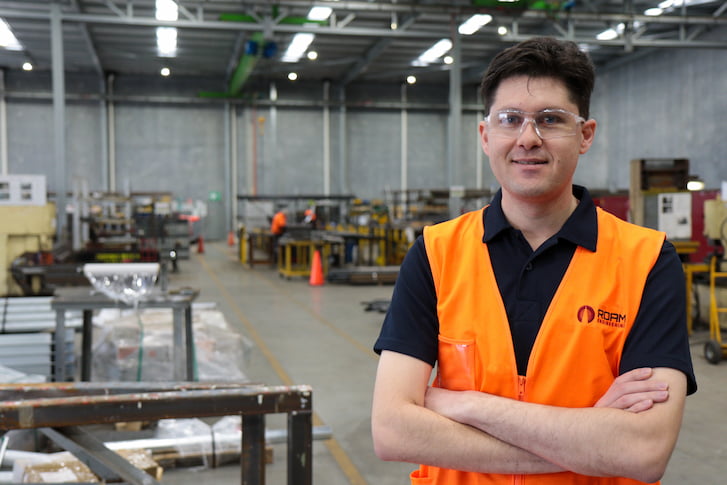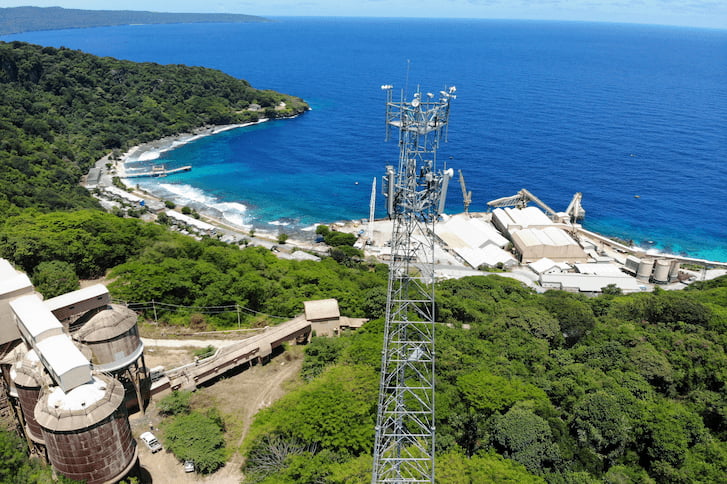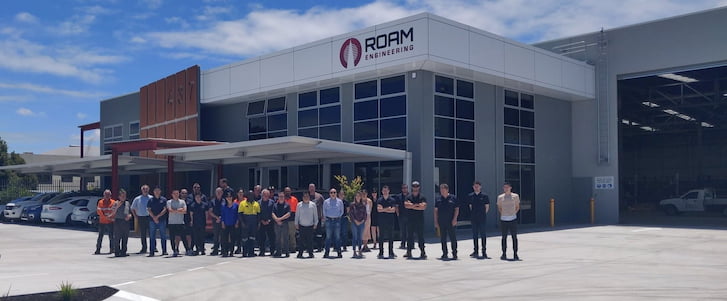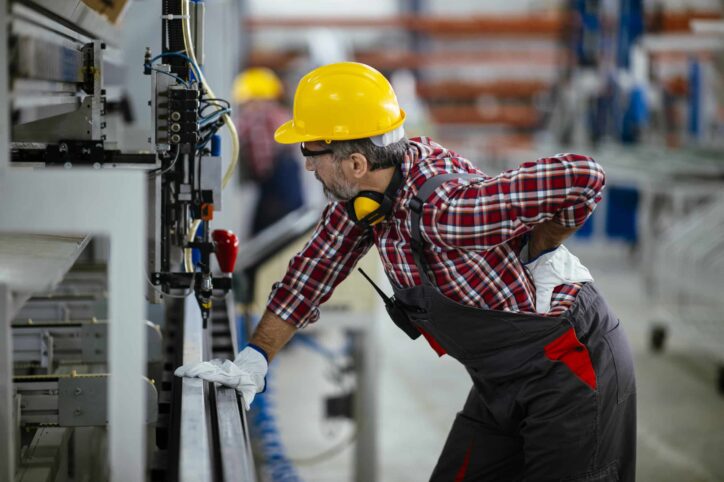Nearly three decades ago, two aspiring Western Australians embarked on a daring entrepreneurial journey to build a leading manufacturing company. Now employing more than 40 staff, including eight of their family members, Malaga-based Roam Engineering primarily designs, builds and installs telecommunication infrastructure across Australia. The company also does some power transmission and piling construction work.

Julian Serra says when his dad, Fernando and co-founder Craig Cooper started the business in 1994, the majority of the work was for telecommunications providers. Now, about 30% of their work comes from the resources industry.
“They [co-founders Fernando and Craig] were originally working in the industry, and then they saw an opportunity to improve what was being supplied in the sector. So, they started Roam in that vein and then grew from there,” says the younger Serra, who has worked for Roam for about eight years, starting as a graduate engineer and now Business Development Manager.
“We see a lot of opportunities in the industry, not just on the telecommunications side, but also increasingly on the power transmission side, especially with the transition to green energy – there's going to be a lot more infrastructure required to support that.
“Additionally, part of our business deals with piling construction. And with a lot of the civil infrastructure projects that are happening at the moment, we see a good opportunity there for us to grow that part of our business.”
CCIWA services invaluable
 Julian Serra says the company weathered the COVID period “pretty well”. They have also adapted to changing customer demands regarding workplace safety and quality.
Julian Serra says the company weathered the COVID period “pretty well”. They have also adapted to changing customer demands regarding workplace safety and quality.
The company works across Australia, from the Pilbara region to the eastern states. They recently finished a project on Mount Mackay, Queensland, which involved putting a telecommunications tower “on top of a mountain with a helicopter”.
“Luckily, we didn't have a major downturn during COVID,” Serra says.
“But we've had a lot of challenges recently in terms of the changing industrial relations and HR [human resources] environment. That's an area that CCIWA has really helped us.
“Recently, we've also been developing a new enterprise agreement which CCIWA has helped us with. So that's been very, very helpful for us.
“We've also found that a lot of our customers over the last five to 10 years have really stepped up how they go about controlling their safety and quality for work on site as well as the products that we supply to them.
“There's a lot more demand on us now to make sure that our processes are correct and meet the correct requirements.”
More growth to come
 Family plays a key part in the business.
Family plays a key part in the business.
Along with his father, Julian Serra’s mum, brother and cousin also work in the company, alongside Cooper and his wife and two nephews.
Similar to many companies in the sector, they are on the lookout for staff.
“We're definitely looking to grow,” Serra says.
“It has been a challenge over the last couple of years to try and find and recruit staff. There's been a bit of a shortage in the industry, which has made things difficult in that regard. So, we've had to really take on a lot more with the same number of people which has been difficult.”
Serra says CCIWA has been a constant as the business has grown over the years.
“Obviously as a company – a small to medium business like ourselves – we can't really have any dedicated internal resource for just HR or legal. So being able to tap into CCIWA to get that extra support is crucial for us,” he says.
Serra says CCIWA’s webinars and events provide a good opportunity for staff to learn additional skills to help them overcome some of the business challenges. Throughout the years they have also reached out to CCIWA for advice on matters such as award rates, dismissals, grievances and contracts.
“The three major challenges for us at the moment would be resourcing, number one,” he says.
“Secondly, is keeping up with the increased quality and safety demands of our clients.
“Thirdly, keeping up with the changes to the technology environment, increased threats from cyber security, and dealing with how we can have people working from home in a safe and reliable way without exposing ourselves to additional technology risks.”
To be part of WA’s peak business organisation, get in touch via 1300 422 492 or [email protected]






